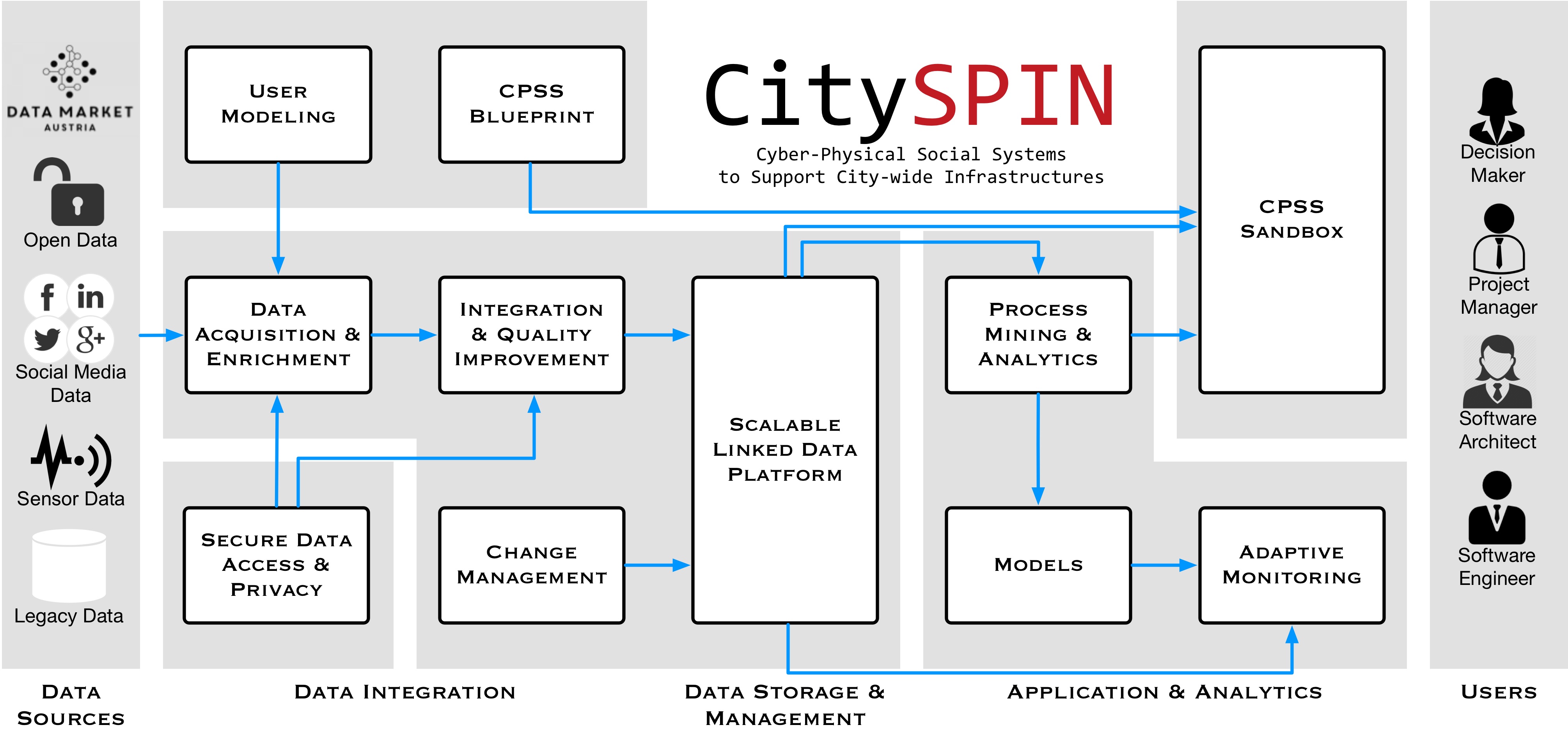Project goals
The project’s main goals are to (i) advance the understanding of CPSSs and their design principles; (ii) provide a platform that addresses the data integration challenges in CPSSs, and (iii) validate the project findings by means of real-world use cases. To that end, the project follows a multidisciplinary approach that brings together research on CPS, Collective Intelligence Systems, Software Engineering, Linked Data, Security and Privacy, and Process Mining.
The project goals will materialize in a number of concrete, innovative results including (i) a CPSS Blueprint that will foster the understanding of CPSSs and provide a taxonomy of CPSSs and a catalogue of suitable architectural patterns; (ii) a CPSS Sandbox, i.e., a visual environment that eases CPSS design by allowing stakeholders to experiment with data processing pipelines constructed from intelligent building blocks for data acquisition, integration, and analytics; (iii) a technology stack that provides a scalable, privacy-aware data integration framework based on Linked Data technologies; and (iv) demonstrators that apply the developed methods and components to implement two use cases in the energy and transportation domain.
These goals will be achieved through theoretical and conceptual developments as well as a set of innovative technological components - illustrated in Figure 1 - that support the CPSS design process in a uniform platform for key stakeholders including decision makers, project managers, software architects, and software engineers.
